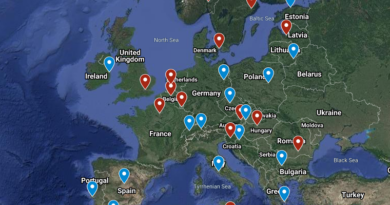Give permanent residence to EU citizens in UK, says think tank
The 3 million EU citizens currently living in the UK should automatically be granted indefinite leave to remain, or permanent residence, according to a British think tank. Despite the statements made during the referendum campaign, the decision of the UK to leave the European Union has made the status of EU nationals in Britain uncertain. “This precariousness will have a significant impact on the lives of millions, with a chilling effect on those seeking jobs, housing and bank loans, and looking to make any other long-term commitments,” says the Institute for Public Policy Research (IPPR) in a report.
The IPPR calls on the government to give certainty granting permanent residence to EU citizens currently in the UK. Permanent residence allows to live in the country without time restrictions and is usually acquired by EU nationals after living in the UK for a continuous period of 5 years. It is different from British citizenship, which confers in addition the right to vote in the general elections and to hold a British passport. This step requires a period of 6 years in the country and involves an application, passing tests and paying a fee.
The think tank proposes to offer automatic citizenship to European children who have been educated in Britain, to waive the GBP1,236 fee for British citizenship for EU nationals who have been in the country for more than five years, and to grant automatic citizenship to Europeans working in the National Health Service, as a recognition of their contribution to public health.
Over the years the UK has toughened its citizenship system an the institute estimates that two groups of migrants are disproportionately disadvantaged. The first consists of people with world-class skills, as the lengthy process encourages them to move elsewhere. The second includes low-wage migrants who are put off by the high fees. The report notes that acquiring citizenship is far more expensive in the UK than in other European countries. In Germany, for example, it costs EUR255. The UK is otherwise described as “a liberalised economy without ID cards” where “we rarely encounter substantive distinctions between citizens and non-citizens in daily life.”
So far Europeans in Britain have been less likely than non-EU nationals to apply for citizenship because, as members of the EU, this would make little difference to their rights (except for the right to vote). In addition, not all countries in Europe allow dual citizenship.
Read more on this topic:
Which countries allow Dual Citizenship and which don’t? Andrew Henderson at the Nomad Capitalist.
Home Office prepares for rise in residency applications from EU migrants. Home Office testing fast-track online system to simplify the current process. The Guardian, 1st September 2016.
‘Brexpats Spanish Nationality Course’ created for British expats in Spain worried about Brexit. The Telegraph, 3 September. 2016.
Photo courtesy Wikimedia. London Waterloo station. By Lewis Clarke, CC BY-SA 2.0




